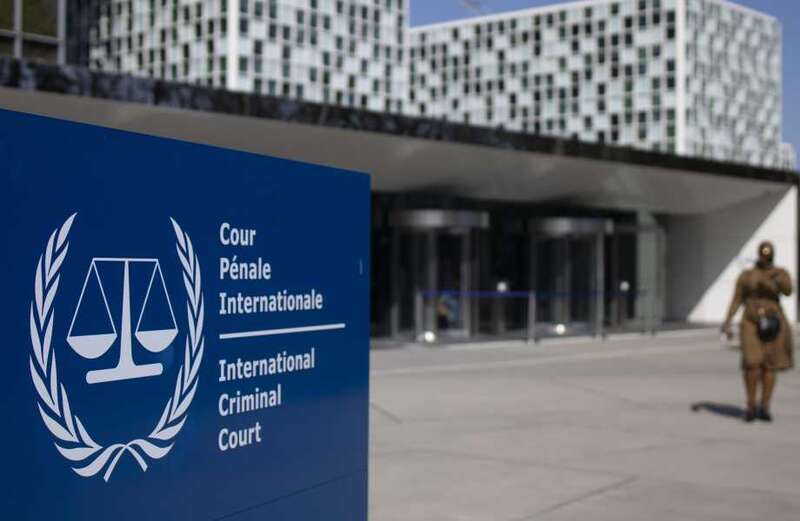AN arrest warrant was put out for Russian president Vladimir Putin on March 17, 2023, after the incident involving an American drone in international waters.
Here, we look at what a war crime is, and what happens when one is committed.

What is a war crime?
A war crime is committed when combatants violate the laws of war as defined by international treaties or customary law.
Acts such as killing civilians, killing prisoners of war, torture, taking hostages, committing genocide and ethnic cleansing are considered war crimes.
They are often unwarranted acts of violence or brutality and violate the rules of military conflicts.
 Putin accused of surrounding himself with same 'actors' at series of events
Putin accused of surrounding himself with same 'actors' at series of events
The International Criminal Court (ICC) investigates breaches of The Rome Statute and tries people who are charged with the most substantial crimes of concern to international communities.
What types of war crimes are there?
War crimes are defined by the Geneva Conventions, the precedents of the Nuremberg Tribunals, the Laws and Customs of War, and the statutes of the International Criminal Tribunal in The Hague (ICTY).
The Geneva Conventions legally established a list of war crimes in 1949 and decided the states capable of exercising universal jurisdiction.
War crimes reflect the criminal responsibility which can be assigned to the acts committed throughout conflicts.
They can be divided into three categories; traditional war crimes, crimes against peace and crimes against humanity.
Genocide is often not officially acknowledged a fourth category but is included in the scope of acts considered a war crime.
These are the grave breaches of war as determined by the Geneva Convention, which is the most well-known of the war crime treaties:
- Wilful killing
- Torture or inhuman treatment, including biological experiments;
- Wilfully causing great suffering, or serious injury to body or health;
- Extensive destruction and appropriation of property, not justified by military necessity and carried out unlawfully and wantonly;
- Compelling a prisoner of war or other protected person to serve in the forces of a hostile Power;
- Wilfully depriving a prisoner of war or other protected person of the rights of fair and regular trial;
- Unlawful deportation or transfer or unlawful confinement;
- Taking of hostages
There are also the Hague Conventions and Geneva Protocol which look specifically at conventional weapons and biological and chemical warfare.
When has a war crime been committed?
Throughout history, there have been countless examples of people who have been accused and proven to have committed war crimes.
Almost every major military conflict has resulted in allegations and proven cases of war crimes being committed.
 Russians wrote 'Happy New Year' on drone sent crashing into playground
Russians wrote 'Happy New Year' on drone sent crashing into playground
World War I was the first international conflict to face accusations of war crimes after the code
Some examples of alleged war crimes include:
Serbian President Slobodan Milošević - 1999
The International Criminal Tribunal for Yugoslavia charged Milošević with genocide, crimes against humanity, and war crimes in Bosnia, Croatia and Kosovo.
He was the first sitting head of state to be charged with war crimes but died in custody before he was tried.
Former Libyan leader Muammar Gaddafi - 2011
Gaddafi was accused of Crimes against Humanity after allegedly ordering civilians and protesters to be killed during the Libyan Civil War.
He died before he could stand trial.
Vladimir Putin - 2022
Russian President Putin is accused of attacking Ukrainians with cluster bombs and vacuum bombs.
The weapons are condemned by a variety of international organizations including the Geneva Convention.
Ukraine's ambassador to the United States, Oksana Markarova, said: "The devastation that Russia is trying to inflict on Ukraine is large."
The International Criminal Court prosecutor has said there is a "reasonable basis" to believe crimes have occurred in Ukraine.
What is the International Criminal Court?
The International Criminal Court is located in The Hague, Netherlands.
It is the first and only permanent international court with jurisdiction to prosecute people for a number of major crimes.
There are four crimes that the court cover, these are; Genocide, Crimes Against Humanity, War Crimes and crimes of aggression.
They began operating in July 2002 after the implementation of the Rome Treaty.
